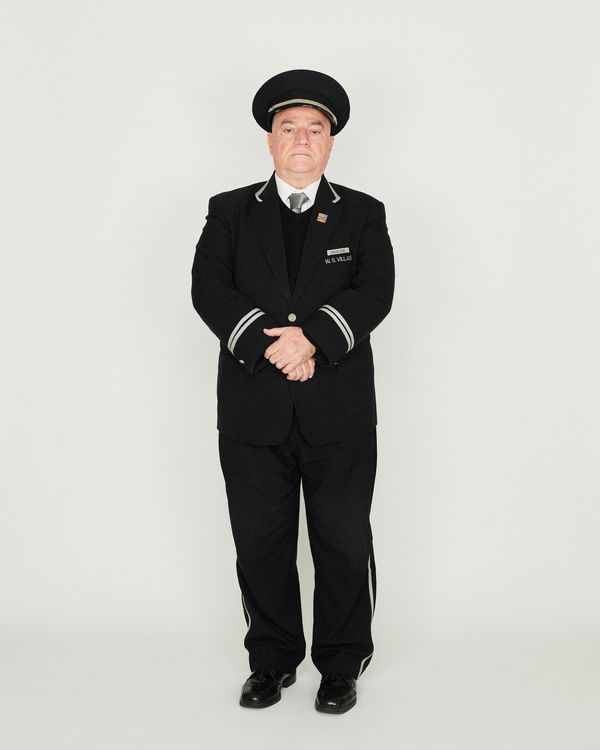
Back in December, before the coronavirus was even named, and long before it shut down the world, we spoke to New York City doormen at a meeting of their union, 32BJ SEIU — mostly about what it was like to serve the sometimes very entitled people in their buildings. As Duilio Bini, who’s been a doorman for 49 years at 2 Washington Square Village, put it: “We are doormen, social workers, bartenders, home attendants, and psychologists too.” But what they are not is trained to battle a pandemic. According to 32BJ SEIU union guidelines, doormen cannot refuse to work, and if there is a confirmed case of COVID-19 in their respective buildings, “your employer should provide you with enhanced personal protective equipment to use while cleaning and appropriate cleaning agents.” And even as the governor declared that everybody who can should just shelter in place, they have to show up: they are considered “essential workers.” Meanwhile, opening doors and handling packages all day long — and, more and more, letting in paramedics — they are on the front lines.
As the rich flee the city …
“I have 418 units—I did the math, I’m figuring there’s probably close to 1,000 people that left for their summer homes. I would say we’re at 40 percent capacity at this moment. A lot of people have left … Everything is moving at a Sunday pace. In a two hour period on a normal day, you would have like 300 people leaving for work, nannies coming in and out, schoolchildren. That has declined to doctors and nurses and a couple of people still going into the office.” —Joseph Fournier, 1365 York Ave., 31 years
… the doormen stay put.
“We’re stuck at our job, we can’t leave. We have to come into work. I know, I would choose to stay home. I have some money saved up. Even if I had to stay out two weeks without pay. Especially me, my wife is working from home, my kids are home.” —James Sabater, 17 W. 54th St., 29 years
And those who are left in town are often elderly, and it’s the doormen’s job to help out.
“We [the doormen] notice that the older ones, those in their 80s and 90s, they stayin’ indoors. Except one we notice she goes out, and she’s in her 90s.” —Sabater
“I would say maybe 20 percent of tenants are elderly. And we already produced the list yesterday of the elderly in the building if we have to assist them through this crisis.” —Duilio Bini, 2 Washington Square Village, 49 years
“On 72nd there are the hospitals right here. The majority of the elderly people, for health reasons, have stayed in the building. I saw these people today and I made it known to them that if there was anything that they needed, in any capacity — if they couldn’t find bread or oatmeal, I reassured them, if that’s something I could get them, I would be willing to do it.” —Fournier
It’s unprofessional to look too worried …
“I have tried to have an upbeat attitude just because I’ve been through a lot in my life. You can’t let that hurricane take the best of you. I’ve spoken to a lot of people saying that worrying is not going to solve the problem. At the end of the day, I have to go home and have a drink. I’m a vodka guy. You’re not supposed to smoke, but I also have a cigarette. My wife will hear me vent and then I’m good. I’m lucky to have a person I can vent to.” —Fournier
… but that doesn’t mean you are not.
“I’m concerned for the elderly in the building. I have a wife who has kidney stones. She also has respiratory issues. And my fellow workers have asthma, high blood pressure, diabetes. There’s a lot of guys that have a lot of issues. I don’t know what’s gonna happen to them. I tell them all the time, ‘Yo, if you’re not feelin’ good, just stay home. You’re a husband and father first before being an employee.’’’ —Michael Cartagena, 118 E. 60th St., 32 years
“I am going to be 68 in April. I’m high risk but I never smoke in my life, not even a single cigarette. My lungs, I hope they can hold if I catch the virus. I might have the virus now! But there are no tests! By the time they can test half the population, there’s going to be a lot of positives. We are in very bad shape in terms of preparedness.” —Bini
But when they can, they’re trying to at least stay off the subway.
“I’m old school. I’m a preparer. I have a bag in my locker here for seven days with toiletries, clothing, and everything in case I get stuck at the job. I’ve made arrangements to stay in one of the occupant’s buildings who’s gonna be away. They called me and say, ‘Mike, I’m gonna be way for six months, whatever you wanna do: eat, shower, use the TV.’” —Cartagena





























